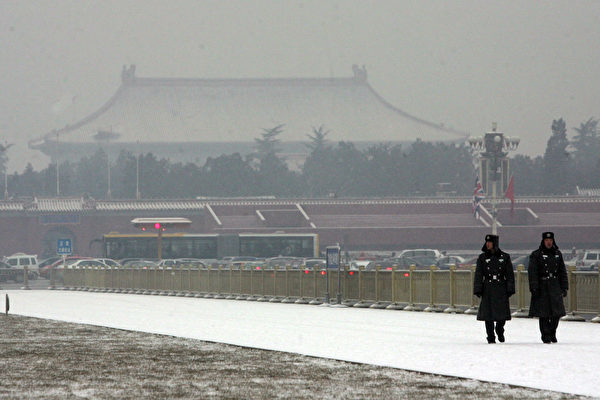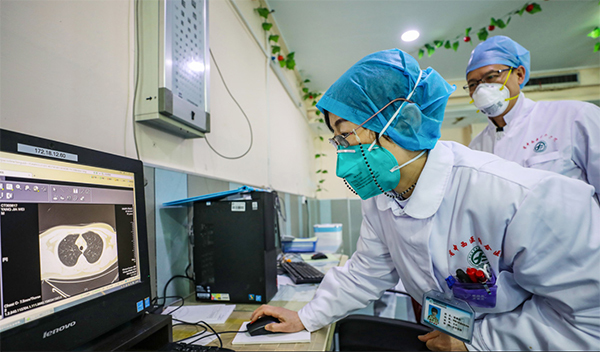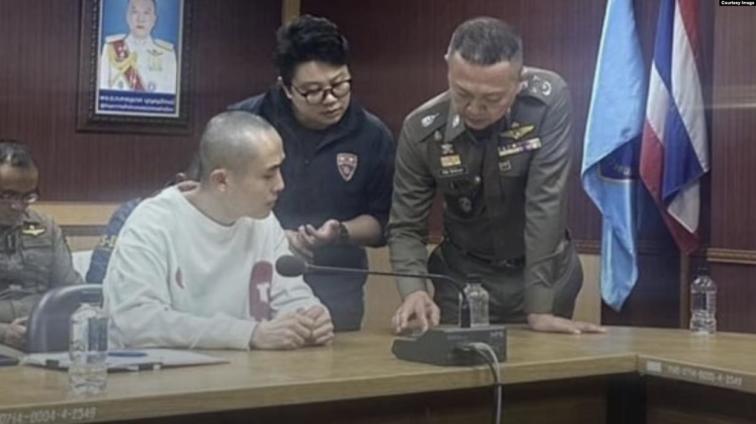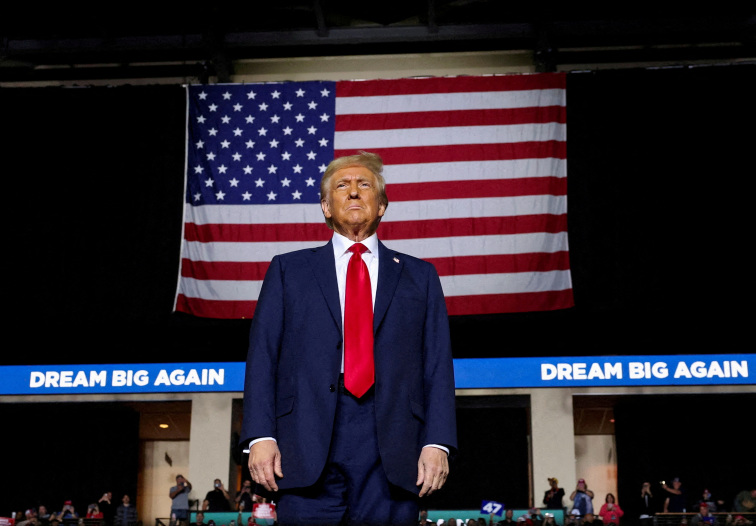Chinese paramilitary police stand guard at Tiananmen Square. (China Photos/Getty Images)
[People News] Debate over whether Chinese Communist Party (CCP) leader Xi Jinping has lost control of military power has long persisted, with two prevailing perspectives. However, both sides cannot deny one undeniable fact: since the CCP’s 20th Third Plenum in July last year, an anomaly has emerged across the military’s theater commands and branches during their study sessions of the plenum’s spirit or the June Central Military Commission (CMC) Political Work Conference. This anomaly is reflected in the fact that either Xi Jinping is not mentioned at all, or his name is only briefly noted in a perfunctory manner, contrasting starkly with the prior loud proclamations of loyalty, such as “implementing the chairman responsibility system.” This anomaly is revealing.
The absence or downplaying of Xi Jinping’s name continues to this day. On January 7, PLA Daily and the PLA’s official website published reports on the 81st Group Army’s study of the CMC Political Work Conference. The core message was “boosting morale and focusing on training and readiness,” which aligns with Xi’s directives. Yet, the entire report failed to mention Xi Jinping even once, only referencing the “CMC Political Work Conference” twice.
The 81st Group Army is part of the Central Theater Command’s ground forces, headquartered in Zhangjiakou, Hebei Province. It is tasked with guarding Beijing. Formerly known as the 65th Group Army, it underwent restructuring during the 2016 military reforms when the seven military regions were replaced by five theater commands. The 65th Group Army became part of the Central Theater Command, and in 2017, it was restructured into the 81st Group Army, incorporating units from the former 27th Group Army.
Between 2008 and 2012, Xu Linping, trusted and promoted by Hu Jintao, served as commander of the 65th Group Army. In 2012, during Zhou Yongkang’s coup attempt, Xu commanded forces that neutralized the paramilitary forces. Liu Zhenli, the current Chief of the Joint Staff Department of the CMC, served as the 65th Group Army’s commander from 2012 to 2014.
Xu Linping served as commander of two major group armies, with Liu Zhenli succeeding him in both instances. After serving two years as deputy commander of the 38th Group Army, Xu became the commander of the 65th Group Army and later the 38th Group Army, with Liu taking over as commander each time. This suggests that Liu Zhenli may also have been trusted by Hu Jintao.
Additionally, reports indicate that Liu Zhenli has close ties to Zhang Youxia, the current Vice Chairman of the CMC. Both participated in the Vietnam War.
Other key figures in the 81st Group Army include Fang Yongxiang, who became political commissar of the newly formed 81st Group Army in April 2017. Fang is now Director of the General Office of the CMC and a member of the Military Election Committee. His former counterpart, then-commander Huang Ming, now serves as Commander of the Northern Theater Command and is considered a protégé of Zhang Youxia.
Wu Aimin, who succeeded Huang Ming as commander of the 81st Group Army in 2019, held roles such as Deputy Commander of the Beijing Garrison, Chief of Staff of the 38th Group Army, and Deputy Chief of Staff of the Army Headquarters. Wu was promoted to Deputy Commander of the PLA Army in December 2024. Although Liu Zhenli commanded the 38th Group Army from 2014 to 2015 and Wu Aimin only joined in 2016, their connections likely run deeper than they appear.
These developments suggest that the 81st Group Army, tasked with guarding Beijing, is not controlled by Xi Jinping’s faction but rather by figures aligned with Hu Jintao and Zhang Youxia. This raises the question: Is Hu one of the CCP elders backing Zhang?
As early as November 13 last year, PLA Daily ran a front-page story about the Beijing Garrison’s efforts to study the CMC Political Work Conference. The article referenced Xi Jinping only once. Unlike the Garrison’s expressions of loyalty to Xi in July during similar sessions, the November statement pledged loyalty to the Party, not Xi personally.
By December 14, another front-page article on the Beijing Garrison studying the CCP’s 20th Third Plenum spirit did not mention Xi Jinping at all.
With both the Beijing Garrison and the 81st Group Army avoiding explicit loyalty to Xi Jinping, can Xi, who appears outwardly powerful, still truly claim control of the military? △
(People News Exclusive Report)
4o








News magazine bootstrap themes!
I like this themes, fast loading and look profesional
Thank you Carlos!
You're welcome!
Please support me with give positive rating!
Yes Sure!